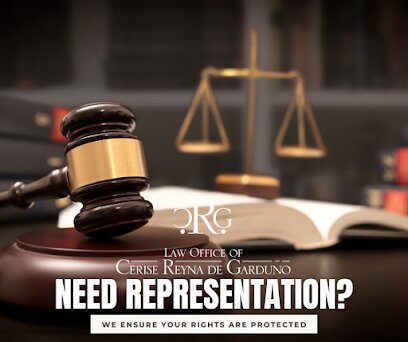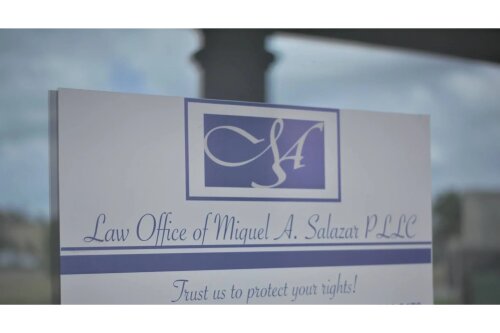Best Toxic Mold Lawyers in Indiana
Share your needs with us, get contacted by law firms.
Free. Takes 2 min.
Or refine your search by selecting a city:
List of the best lawyers in Indiana, United States
About Toxic Mold Law in Indiana, United States
Toxic mold refers to microorganisms, such as certain species of fungi, that can grow indoors when moisture is present. Common types include black mold (Stachybotrys chartarum) and Aspergillus. Excessive mold exposure can cause various health problems ranging from allergies and respiratory issues to other severe medical conditions, especially for vulnerable people. Legal issues may arise when toxic mold is present in homes, schools, or workplaces in Indiana, particularly when there are claims about property damage, personal injury, or failure on the part of property owners to address mold problems.
Why You May Need a Lawyer
Legal assistance is often important in toxic mold cases due to the complexity of proving responsibility and damages. Here are some common scenarios where consulting an attorney can be helpful:
- Landlord-tenant disputes where the tenant believes the landlord has not taken action to remedy a mold issue.
- Real estate transactions where buyers discover mold after purchasing a property and suspect the seller failed to disclose the problem.
- Personal injury claims related to health issues allegedly caused by toxic mold exposure in homes, rental units, or workplaces.
- Insurance disputes when coverage for mold remediation is denied or insufficient.
- Mold issues in commercial buildings where business owners or employees are affected.
Local Laws Overview
Indiana does not have a specific statewide law addressing toxic mold contamination or remediation. However, several legal principles and local regulations may apply in toxic mold cases:
- Landlord-Tenant Laws: Indiana Code Title 32 Article 31 sets requirements for landlords to provide habitable conditions, which can include addressing water leaks or other sources of mold.
- Disclosure Requirements: While Indiana does not require sellers to specifically disclose mold, they must disclose known material defects on the Indiana Seller’s Residential Real Estate Sales Disclosure Form, which can include mold-related issues.
- Building Codes: Local building codes and ordinances may require property owners to maintain properties free from hazardous conditions, including excess moisture and resulting mold.
- Negligence Claims: Occupants affected by mold may pursue legal action based on negligence if they can show the property owner failed to maintain a safe environment or address known hazards.
- Insurance Policies: Coverage for mold-related damage depends on the wording of your homeowner’s or renter’s insurance policy. Some policies exclude mold while others provide limited coverage.
Frequently Asked Questions
What health effects can toxic mold cause?
Toxic mold can cause symptoms such as nasal congestion, coughing, wheezing, eye irritation, and skin rashes. People with asthma, allergies, immune suppression, or respiratory conditions are more at risk of severe symptoms.
Are landlords in Indiana required to remove mold found in rental properties?
Indiana law requires landlords to maintain safe and habitable properties. If mold results from failure to fix leaks or moisture problems, tenants may request repairs and, if not addressed, may have legal remedies under Indiana’s landlord-tenant laws.
Does Indiana law require sellers to disclose mold before selling a house?
While there is no explicit requirement to disclose "mold," sellers must reveal known material defects that can include issues leading to mold growth, such as water damage or leaks, on the Indiana Sales Disclosure Form.
Can I sue my landlord or seller for damages caused by toxic mold?
If you have suffered health problems or property damage due to mold that resulted from negligence or undisclosed defects, you may have grounds for a lawsuit. Consult a lawyer to assess your case’s specifics.
What should I do if I discover mold in my home?
Promptly document the mold, identify and fix the source of moisture, notify your landlord if you are renting, and consult professionals for remediation. Keep records of communications and any expenses paid.
Will my homeowner’s insurance cover mold damage?
It depends on your policy terms. Many policies exclude or limit coverage for mold damage, especially if caused by neglected maintenance. Check your policy and speak with your insurance provider.
Can tenants withhold rent if landlords do not fix mold problems?
Indiana law does not generally allow tenants to withhold rent without a court order. However, tenants may take legal steps to compel repairs or terminate the lease if the property remains uninhabitable.
How can I prove mold exposure caused my health problems?
Medical documentation linking your symptoms to mold exposure, environmental testing, and expert testimony from healthcare providers or specialists are often required in legal claims involving toxic mold.
Who is responsible for mold in commercial buildings?
Responsibility depends on lease agreements and the source of the mold. Both property owners and tenants may share liability, but the property owner is typically responsible for building structure and systems.
How long do I have to file a lawsuit for mold exposure in Indiana?
The statute of limitations for personal injury in Indiana is usually two years from the date of injury or discovery of the problem. Real estate and contract claims may have different deadlines. Timely legal advice is important.
Additional Resources
Here are some helpful resources and organizations for people dealing with toxic mold issues in Indiana:
- Indiana State Department of Health - Indoor Air Quality Program
- Indiana Legal Services (provides legal assistance to qualifying individuals)
- Indiana Apartment Association (for tenant concerns)
- U.S. Department of Housing and Urban Development (HUD) - Mold resources
- Environmental Protection Agency (EPA) - Mold guidance and cleanup
- Local county or city health departments
Next Steps
If you believe you have a toxic mold issue affecting your health or property in Indiana, consider taking the following steps:
- Document all evidence, including photographs, medical records, and communications with landlords, sellers, or property managers.
- Consult a qualified mold remediation professional to assess and resolve the issue if possible.
- Review your lease, insurance policies, and any property disclosures for relevant terms and obligations.
- Contact appropriate governmental agencies or local health departments for guidance and support.
- If you have suffered harm or your rights have not been protected, seek legal advice promptly. Look for attorneys who specialize in landlord-tenant law, real estate law, or environmental law in Indiana.
Timely action is crucial to protect your health and your legal rights. Qualified legal professionals can help evaluate your situation, negotiate with responsible parties, and, if necessary, represent you in court.
Lawzana helps you find the best lawyers and law firms in Indiana through a curated and pre-screened list of qualified legal professionals. Our platform offers rankings and detailed profiles of attorneys and law firms, allowing you to compare based on practice areas, including Toxic Mold, experience, and client feedback.
Each profile includes a description of the firm's areas of practice, client reviews, team members and partners, year of establishment, spoken languages, office locations, contact information, social media presence, and any published articles or resources. Most firms on our platform speak English and are experienced in both local and international legal matters.
Get a quote from top-rated law firms in Indiana, United States — quickly, securely, and without unnecessary hassle.
Disclaimer:
The information provided on this page is for general informational purposes only and does not constitute legal advice. While we strive to ensure the accuracy and relevance of the content, legal information may change over time, and interpretations of the law can vary. You should always consult with a qualified legal professional for advice specific to your situation.
We disclaim all liability for actions taken or not taken based on the content of this page. If you believe any information is incorrect or outdated, please contact us, and we will review and update it where appropriate.
Browse toxic mold law firms by city in Indiana
Refine your search by selecting a city.











